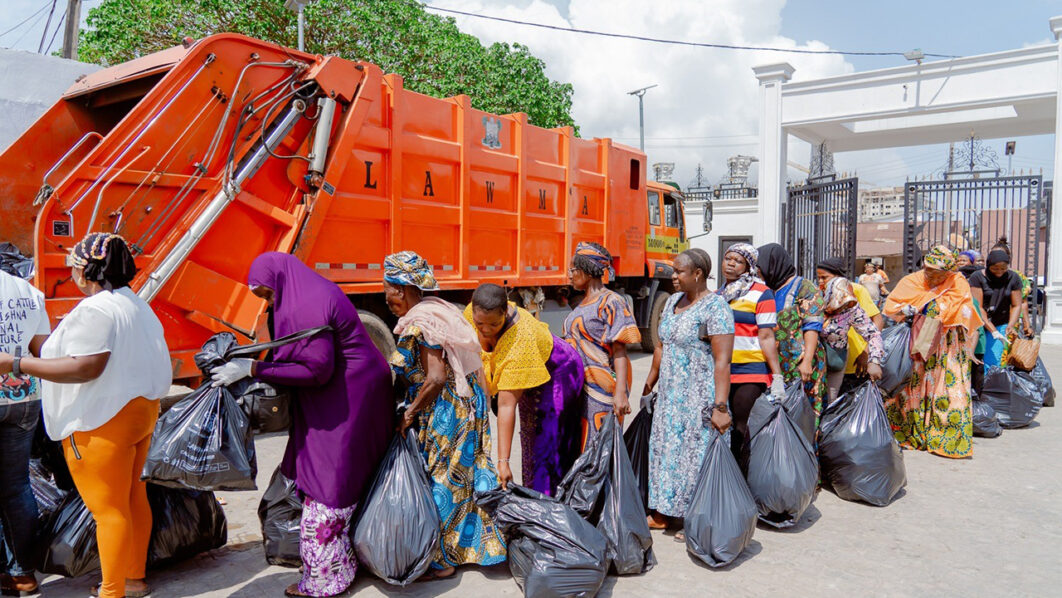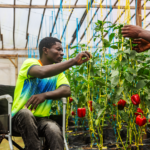Lagos is betting on recycling to build climate resilience and healthier communities.
Lagos generates over 13,000-14,000 tonnes of waste every day, much of which is dumped in sprawling landfills that choke the city’s ecosystem.
For decades, Olusosun, Africa’s largest dumpsite, has symbolised this urban dilemma. Fires triggered by methane, smoke clouds poisoning neighbourhoods, and groundwater pollution from leaking waste have made it a public health and environmental hazard.
With its planned decommissioning within 18 months, Lagos is moving to replace legacy dumpsites with modern recycling infrastructure designed to recover resources rather than bury them.
The new vision is built on Transfer Loading Stations and Material Recovery Facilities that transform waste into usable resources. Organic matter, which makes up half of the city’s waste, can be turned into compost, cooking gas, or animal feed.
Plastics, metals, and paper can be recycled into industrial raw materials, creating a circular economy where trash becomes valuable. This transition would reduce flooding caused by blocked drains, cut air pollution from burning, and open up new economic opportunities in recycling and resource recovery.
Technology is being positioned as a game-changer. Plans include the deployment of smart bins equipped with sensors to monitor collection, clean-energy compactor trucks to reduce emissions, and a digital Waste Management Information System to track billing and recycling performance in real time.
By creating a transparent, data-driven system, Lagos aims to close the gaps that have historically fuelled inefficiency and corruption in waste services.
Poor waste management has long contributed to flooding, respiratory illnesses, and climate risks from methane emissions. A functioning recycling economy could transform Lagos into a hub for green jobs, particularly for women and young people who already dominate informal waste collection.
Health outcomes would improve as fewer fires burn in dumpsites and drains are kept clear of refuse. Economically, Lagos could capture billions of naira in lost value while strengthening its global image as a megacity embracing climate resilience.
Experience shows that infrastructure without enforcement rarely delivers. Extended Producer Responsibility laws, which require companies to finance the recycling of plastics and packaging, have often been weakly enforced.
Public participation also remains low, with households rarely separating waste at the source. Without a culture of separation, recycling plants risk being overwhelmed with unsorted trash. Political will is another obstacle, as new administrations may shift focus or weaken existing reforms.
Africa’s recycling models
Lagos is not alone in this pursuit. Rwanda’s ban on plastics, South Africa’s producer responsibility model, and Kenya’s community recycling hubs all provide useful lessons. Cairo offers another striking model where informal waste pickers recycle more efficiently than official systems.
These examples suggest that Lagos’ transition will only succeed if informal collectors are integrated into formal systems and if policies prioritise inclusion, transparency, and education.
What Lagos must do is build a system that values the contribution of grassroots recyclers, enforce accountability in private and public operations, and foster a mindset shift so that residents see waste as a resource rather than a burden.
Without this, infrastructure risks becoming underused or abandoned. With it, Lagos can set a continental benchmark for waste-to-wealth innovation, proving that even Africa’s largest and most chaotic city can turn environmental crises into engines of resilience and growth.
Summary not available at this time.






